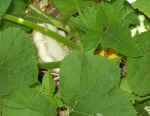|
MSc in Integrative Ecosocial Design |
 |
 |

Richard Kühnel |
|||
| |||||||||||||||||||||||||||
| <<<previous page | next page >>> | |||
|
Navigation Resources Bibliography Photos Drawings Appendix Journal Forum Presentation Resume Portfolio Help |
Career Review
Systems Design During my life there have been several important learning paths going on parallel. Among them are personal growth and healing, sustainability and software development. Although I am focusing here on information technology, all these paths have a common thread as Berta pointed out to me - systems design. There are many common aspects to designing a software system, a social system, a land use system or a community system.
Many of my natural and acquired skills have to do with being able to organize, analyze and plan in great detail pretty much anything. These skills I apply in various ways, be it for starting up a business, for software development projects, for reorganizing business processes, for planning events, design and many other areas Project Management: Organizing: Writing specifications: Analyzing and synthesizing: Choosing between alternative methods: Planning and dependencies: Commitment and accountability: Grace, Murphy's Law and catastrophic events:
Research
Methods: Working in groups: Some other IT skills I have learned are software and database design, programming, testing, installing and training. Additional principles of planning and designing I have learned are the concept of single point of failure, redundancy (cross over to the principle of multiple functions/elements) and the balance between centralized and decentralized (or distributed) systems (cross over to resilience). I think I have a natural talent of bringing things into some type of order, organizing them in a way that works for me to, break larger tasks and problems down into smaller ones and put them back together. Also, I like being organized and can do this easily. I enjoy asking the question behind the question and look for the pattern behind the pattern. I observed my father how he worked, quite organized. I have been learning a lot by doing many projects without prior formal training or having done them before. I learn by mistakes and trial and error. Then from that experience, refine my skills further. Sometimes I take courses and get some formal training. Working on a specific problem talking to others and doing research has been a very successful learning tool. Following my intuition and being curious both have proven often very fruitful. Sometimes it is hard to distinguish between intuition and deeply internalized processes. Many methods and skills I am using in software design can be translated into skills for ecological design and vice versa, like systems thinking, interface development translates into relationship analysis, function specification translates into input, outputs and intrinsic functions, etc. I learned to concentrate for long periods of time on one subject and stay extremely focused to the extend that I forget my physical needs. Trying to visualize all steps from beginning to end, every single step, and what action or resource is needed to get to the next step is something I have been doing in event planning as well as in process development. The only way to validate what I learned is to look at the results when applying it. What has changed over time is how to look at results. Is it within budget, within time, does it do what it is supposed to do and does it do it well and efficient, is it sustainable, does it use renewable resources, is it restorative in nature, accessible to everyone, socially connecting people and communities, etc. This includes personal aspects, like how does everybody feel about it, is anyone burned out, neglected or disrespected, how did we follow our sense of integrity and ethic, what do I feel about it. Even when failing, looking at the outcome or absence of it and what was happening and why, holds valuable lessons to learn from and change direction. Many skills that I used developed and learned I can use in several areas. Being good at solving problems helps in many areas – be it finding a solution to a software issue or in designing a product or property. Having patience and persistence is something I learned in the IT field and helps to get through time consuming, sticky projects. Discipline helps to get tasks completed.
And then there are a bunch of skills, like basic sewing, cooking, ironing, laundry, house cleaning, using tools, driving a car and following technical specifications that are very handy for the day to day things in life. I am also bilingual, fluent in German and English, have some skills in gardening and can listen and be still for long times.
After my IT experience with Dakotah Direct I decided that, if I work in this field again, to only do this if working for sustainable projects. I can build on a lot of expertise from the past and use my knack for figuring out things, puzzling, finding solutions, doing online research, etc as well as my organizational and planning skills. I might choose to make this a larger endeavor later or not. My passion is to move into the design of sustainable, ecological and community projects, services, products, systems, etc. that use these skills, but also require understanding of how nature and ecosystems work, how groups and people “function” and require a mixture of other skills from architecture to landscaping, mediation, conflict resolution to group work and self development. |
|||
| <<<previous page | next page >>> | |||
|
Copyright © 2002 - 2011 Richard Kuhnel
|